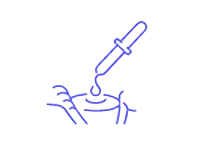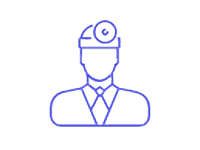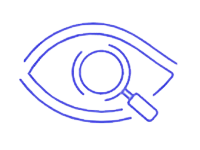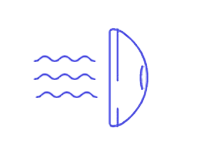Routine eye tests are nothing to be worried about. They are painless and usually take about 20-30 minutes. If you are visiting a new ophthalmologist, the appointment will take a little longer to allow for a complete medical history. During the first visit, you will be asked questions such as:
- Do you have any eye problems, in the past or present?
- Do you wear glasses and/or contact lenses?
- Have you ever had eye surgery?
- Is there any family history of eye problems?
- What is your medical history?
- Do you take any regular medication?
- Do you have any allergies?
- Do you have or is there any family history of, heart disease, hypertension (high blood pressure) or diabetes?
You will also be asked about any current vision problems.
Then the doctor will perform several different tests. These include checking the internal structures of the eye and measuring your visual acuity to determine if you need corrective lenses or if your current lenses need to be changed.












